Rewind to 2017. An enthusiastic Royal Mail pulls the wraps off a new electric vehicle weighing in at 7.5 tonnes which, it claims, will transform its business over the following few years.
However, amid ongoing fanfare and promises, large-scale production by the newcomer vehicle manufacturer failed to materialise; that is, until now.
The company, of course, is Arrival, the 2015 start-up electric vehicle (EV) specialist which has bold ambitions to disrupt the fleet sector with its range of electric vans, trucks and buses. It has even revealed plans to dip a toe into the highly competitive car market.
Arrival may have only existed for a few years, but it has already attracted big-ticket investment, including $100 million (£73m) from Hyundai, which will see the carmaker and its sister brand Kia utilise Arrival components and technology in their own electric cars.
The Oxfordshire-based manufacturer is now listed on the Nasdaq with an initial valuation of $13 billion (£9.54bn); its current market capitalisation stands at a little more than $4.2bn (£3bn).
Since that early dalliance with the UK’s largest fleet operator, Arrival has moved on to collaborate closely with global delivery giant UPS on its 3.5-tonne van.
Two years ago, UPS placed an order for 10,000 vehicles. The first of these will be delivered this quarter, with production ramping up to full capacity by the end of the year.
Rewind to 2017. An enthusiastic Royal Mail pulls the wraps off a new electric vehicle weighing in at 7.5 tonnes which, it claims, will transform its business over the following few years.
However, amid ongoing fanfare and promises, large-scale production by the newcomer vehicle manufacturer failed to materialise; that is, until now.
The company, of course, is Arrival, the 2015 start-up electric vehicle (EV) specialist which has bold ambitions to disrupt the fleet sector with its range of electric vans, trucks and buses. It has even revealed plans to dip a toe into the highly competitive car market.
Major investments
Arrival may have only existed for a few years, but it has already attracted big-ticket investment, including $100 million (£73m) from Hyundai, which will see the carmaker and its sister brand Kia utilise Arrival components and technology in their own electric cars.
The Oxfordshire-based manufacturer is now listed on the Nasdaq with an initial valuation of $13 billion (£9.54bn); its current market capitalisation stands at a little more than $4.2bn (£3bn).
Since that early dalliance with the UK’s largest fleet operator, Arrival has moved on to collaborate closely with global delivery giant UPS on its 3.5-tonne van.
Two years ago, UPS placed an order for 10,000 vehicles. The first of these will be delivered this quarter, with production ramping up to full capacity by the end of the year.
UPS has played a “critical” role in the development of the electric vans, according to Arrival. Its feedback has helped to fine-tune and evolve the design, technology and key features to maximise their usefulness, reliability and durability.
During an exclusive tour of Arrival’s R&D facility in Banbury, close to its first ‘microfactory’ production plant in Bicester (more on that shortly), Fleet News asked vice-president of product Patrick Bion and head of vans James Broomer why it had taken so long to get the production vehicle to market.
“We had to solve more than just the vehicle itself; it was about the technology, the materials and the components across three vehicle programmes – bus, van and car,” says Bion.
“We knew there was huge demand from fleets, and we were keen to move fast, but we had two priorities: price and scalability.
"If we had rushed into traditional manufacturing processes, components and materials, we would not have been able to scale or get the right price for the customer.”
Essentially, in addition to designing the vehicle, Arrival had to come up with a whole new way of making it.
The microfactories – it currently has three globally – will be built wherever there is demand and can be set up and making vehicles within six months. They are largely self-sufficient, with Arrival owning the end-to-end process from raw material to finished product, which eliminates the need to ship parts all over the world, saving time, money and the environment.
This focus on sustainability and efficiency isn’t just about reducing costs; it is a fundamental ingredient in Arrival’s DNA.
Each microfactory is capable of making 10,000 vehicles in an area of just 100,000 sq ft – about the size of two football pitches.
“That’s the right volume for a city or region,” says Bion, who spent four years at Tesla.
“There is no shipping; we are not pushing carbon down the line.”
Rivals have caught up
The production delays have, inevitably, meant that traditional manufacturers have caught up with their own electric vans, but that doesn’t faze Arrival. Bion says:
“We celebrate this because it influences the battery cost and infrastructure, so it’s good news.
“But they (rival manufacturers) have to balance the commercial prosperity of their diesel vehicles with electric, which means they lose money or have low margins. We don’t have that issue; we don’t want product compromises.”
Price, he adds, will be among Arrival’s key differentiators, both purchase price and total cost of ownership (TCO).
Savings on fuel, servicing and price, less downtime and better reliability point to a 17-18% reduction in TCO versus a comparable diesel van.
Among the innovations claimed to minimise TCO are the use of new body materials, which reduce servicing costs and extend length of operation, and internally designed components which remove reliance on tier one suppliers.
The company reassessed traditional methods and materials which largely centred on “energy inefficient” stamping, welding and painting. It designed fully recyclable glass fibre reinforced polypropylene composite panels which are attached to an aluminium structure.
During identical impact testing, the composite panels withstood damage better than conventional panels, enabling the vehicle to remain operational and repairs to be carried out in situ rather than at a bodyshop. They are also less susceptible to rust.
However, if the panel is ruined, Arrival is able to chop it up and re-use in another part. In addition, they are not painted but moulded in the required colour, which means scratches do not show up.
Two of the team helping to drive Arrival forward – James Broomer, left, and Patrick Bion
Make your own parts
The panels are made at the Bicester plant, with each taking around 20 minutes. Their simplicity means that, theoretically, a fleet with a workshop could buy the press to make their own parts, although the company has also signed agreements with Kwik-Fit and Rivus to act as its aftersales network.
The vehicles feature over-the-air software for the latest safety and technical upgrades, while predictive maintenance will identify any potential faults before they happen.
Arrival has also shone the spotlight on length of ownership. With typical replacement cycles of four-to-five years, and very few fleets stretching beyond seven, Bion believes this is a “missed opportunity”. He wants Arrival vehicles to last longer – potentially 10-15 years or more. He adds:
“We can upgrade vehicles over time because we have ownership of all the parts”
Bion recognises that there will be a certain “nervousness” about keeping vehicles beyond a decade and accepts that Arrival will need to prove itself on quality and, most importantly, robustness and reliability.
Consequently, it has spent considerable time on component testing, assisted by UPS.
“UPS’s involvement has been critical and a differentiating factor for us to engage with fleets so early on in the process. They wanted to influence the design of the vehicle but couldn’t with other manufacturers, but we could offer them that opportunity,” says Bion.
“It has helped us to understand and improve durability and duty cycles and address battery degradation. The trials were an opportunity to test, find and solve problems.”
UPS feedback on incident damage enabled Arrival to assess which panels should be bonded and where they should be split to speed up replacement.
Other features influenced by UPS included the removal of door hinges and handles, a traditional weak point on vans through overuse. Instead, Arrival vans have a sliding nearside door which opens via a capacitive touchpoint.
UPS also influenced the lower floor height, making access easier and reducing the potential for knee damage by drivers leaping from the cab, and the walk-through bulkhead.
Other design tweaks include bringing the driver closer to the windscreen which has been extended lower by pushing the dash line down.
This improves driver visibility by 20% and minimises the blind spot – a child can be spotted several metres closer to the vehicle, for example.
Companies can choose traditional wing mirrors or e-mirrors; the latter protrude by just 250mm, reducing the chances of damage.
Bespoke shelving solutions are available, although Bion quickly adds that Arrival has no plans to become a body builder which custom builds every vehicle.
“But where we see big demand from a fleet, we want to replicate – for example shelving, which we can put through our own testing,” he says.
All this helps to build a compelling story, but what about the electric technology itself – the thing that got the senior executives at Royal Mail so excited in the first place?
Progress on range
The original trucks offered a range of 100 miles, at that time class-leading. However, progress over the past four years has been rapid.
Arrival manufactures and assembles 70% of the electrical architecture itself, enabling big leaps forward. Its vans are now capable of travelling up to 218 miles (see below for model information).
Bion describes its range figures as being “real-world”, adding: “We are conservative on our forecasts. WLTP (the official testing programme) doesn’t matter – we look at the worst-world figures.”
The company carefully monitors battery degradation, cell health, drive cycles, charging and energy consumption – all vital contributors to long-term range capabilities.
“We can advise fleets on the best use,” Bion says.
By the end of this year, Arrival will be producing its electric van “in the low thousands”; full capacity of 10,000 units at the Bicester microfactory will be achieved in 2023 with most earmarked for the UK and a few for mainland Europe.
Within five years, the company expects to be selling “hundreds of thousands of vehicles globally”, says Bion.
To accommodate this, the number of microfactories will swell to double digits in the next couple of years and to three figures shortly after. “Four or five” will be in the UK, according to Bion, who adds:
“We have capacity to meet demand expectations in 2022 and 2023. The UK will be a major market.”
Vans, trucks and cars set for Arrival
The first vehicle to roll off Arrival’s production lines this year will be a large van, available as 3.5-tonne and 4.25-tonne in high roof specification, the latter with an impressive turning circle of less than 12.5 metres.
By 2023, it will be available with three roof heights and four body lengths, together with a chassis cab for conversions.
The battery pack options will be 67kWh, 89kWh, 111kWh and 133kWh, offering range of between 180-350km (112-218 miles).
Arrival will also launch a seven-tonne small truck, effectively a scaled-up version of its van with payload options from one tonne to 3.5 tonnes. Offering excellent manoeuvrability and ergonomics, it will feature larger batteries of 200kWh and 400kWh for extended range.
Charging speeds for the vans will be 11kw for return-to-base fleets and overnight charging or 22kw for vehicles working double shifts or requiring use of the public network. There will also be the option of 120kw DC fast charging for the likes of grocery fleets. Patrick Bion says:
“The key is to offer the right variants for the right job.”
Charging times are typically 60-90 minutes for a 0-80% fill, even for the larger battery packs.
The battery packs are modular and scalable. If a cell fails, the vehicle will continue to operate, just with slightly less range. And individual modules – 18-36 in a van – can be removed and replaced.
“We monitor the performance of the battery, and we receive an alert if there is a problem so we can pre-empt or immediately address it,” says Bion.
From mid-2022, the Arrival electric bus will enter production, while in 2024, Arrival will introduce a range of smaller vans.
It has also unveiled a car targeted at ride-hailing companies.
Developed alongside drivers from Uber, the car has twice the legroom of a conventional vehicle of the same length. It will now start testing ahead of a product launch still a couple of years away.
“The ride-hailing market is the first one we want to solve, but there will be an opportunity to extend into the private market or the company car market,” says Bion.
Login to continue reading.
This article is premium content. To view, please register for free or sign in to read it.



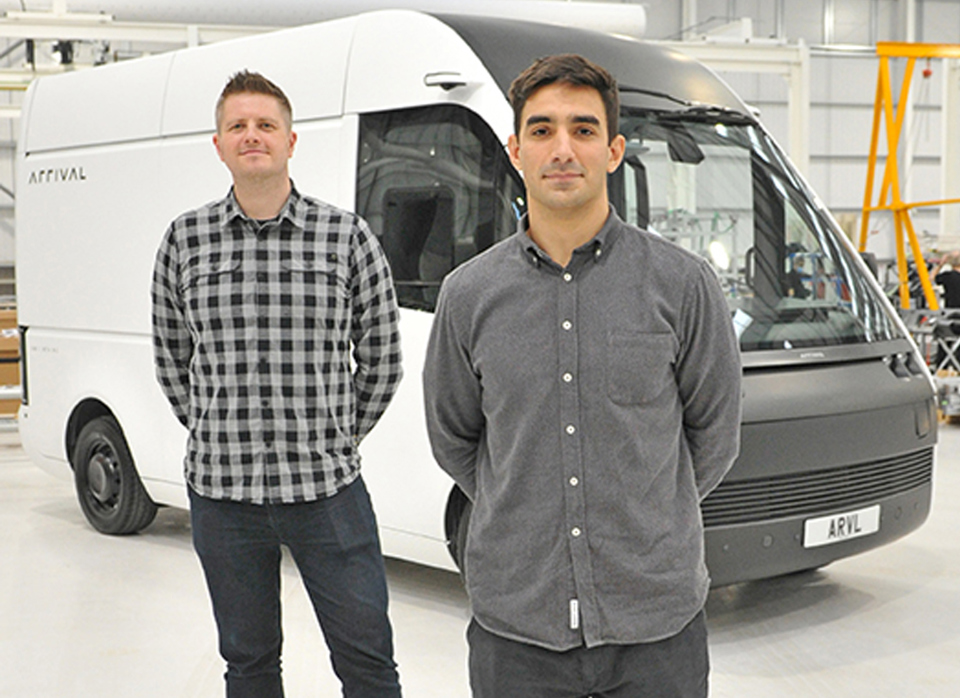
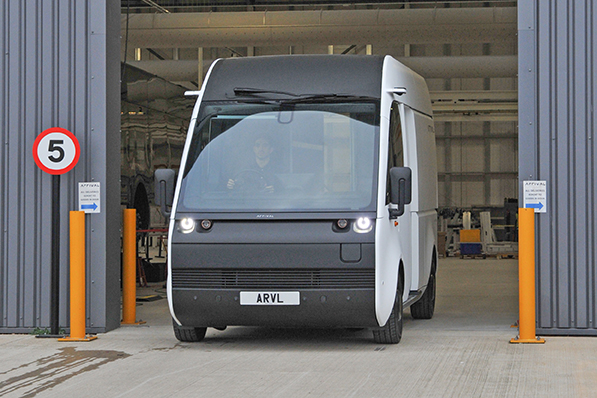
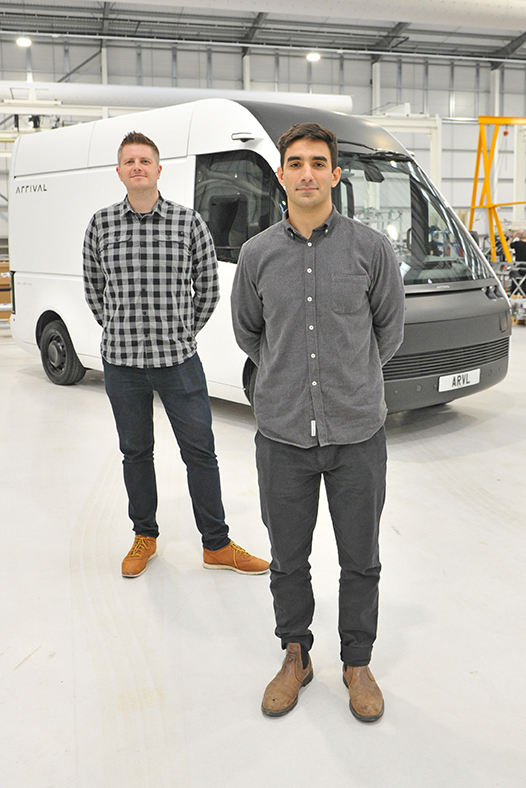
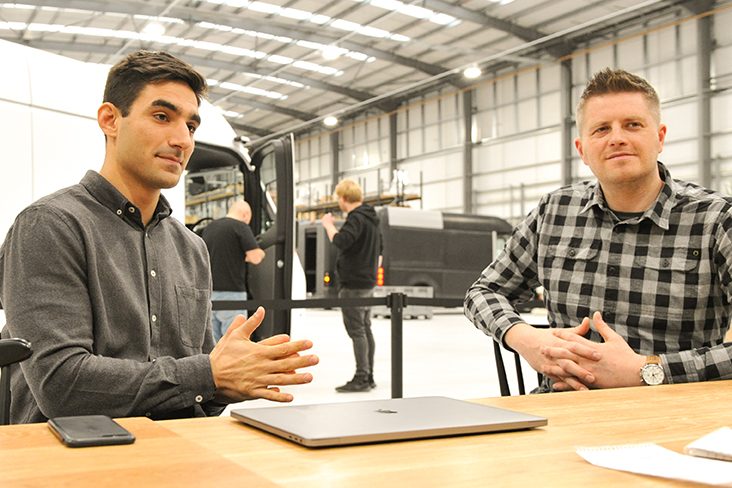
















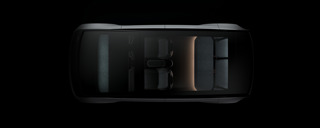
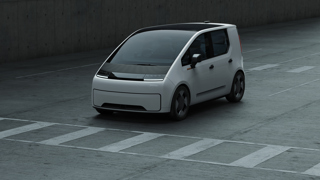
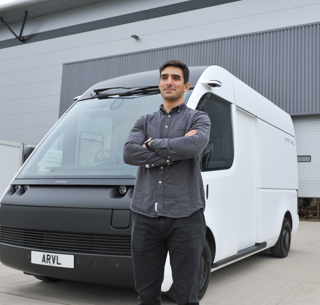
Login to comment
Comments
No comments have been made yet.